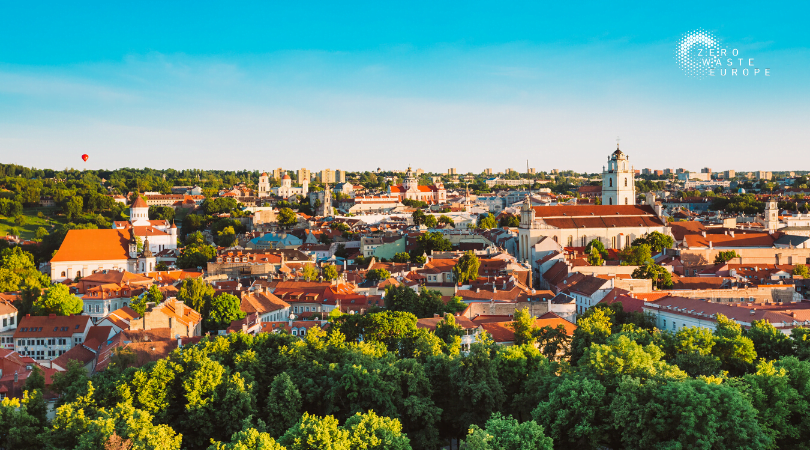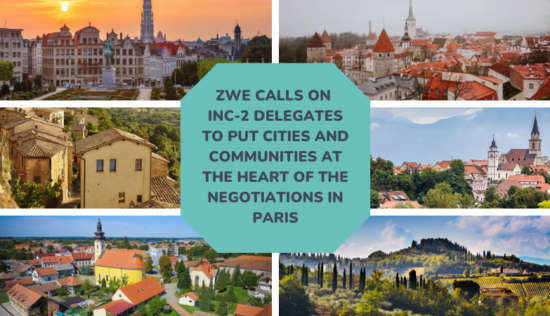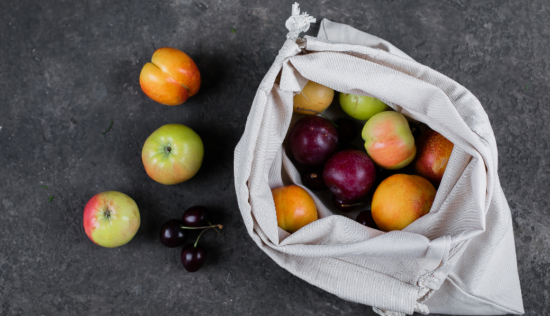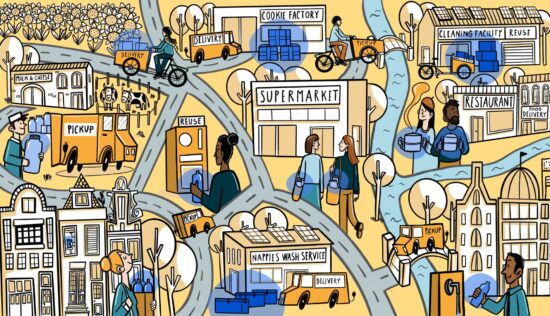The city of Vilnius, Lithuania, recently announced that single-use plastic – especially on tableware – will no longer be used during public festivities. The decision will come into force in early March 2020.
At the beginning of the year, a strong decision was made by Vilnius City Council to ban disposable plastic items from being used during any city events, as of March 2020. This important decision is a good first step to help reduce plastic waste that is produced in the city, while also educating citizens on how to be more mindful about their waste disposal.
Furthermore, the restrictions on the use of plastics in city events aims at encouraging citizens to be more aware of the impact that plastic – especially single-use items – has on our environment and on the climate. Indeed, disposable plastic products are usually intended for a single or short use after which they are disposed of. The discarded disposables pollute the environment, the land, waterways and oceans, with microplastics from the slowly disposing of plastic can enter the human food chain decades after the original product was first used. It is expected that once this decision is adopted and implemented at the city level, plastic pollution within Vilnius will be significantly reduced.
The Council’s decision follows the pioneering European legislation adopted in May 2019 to reduce the consumption of single-use plastics products across Europe that are responsible for a vast amount of pollution that enters into the environment (read more).
This week, we had the pleasure to interview Domantas Tracevicius, founder of Žiedinė Ekonomika – Zero Waste Lithuania – to learn more about this inspiring regulation in Vilnius:
- Hi Domantas, can you briefly introduce yourself: how long have you been working in this field and what got you into (zero) waste?
Waste management is in my blood. I have spent lots of my childhood in my father’s composting plant and learnt a lot about composting and biowaste.
Mimic nature’s perfect conditions and you will have good results
Avoiding the creation of waste was part of my upbringing, and once I heard that Ljubljana was (and currently is) the only zero waste capital in Europe I became very motivated to share this best practice example in Vilnius in order to achieve the same results. However, the reality turned out not to be so easy! But the city is moving in the right direction. Just a few days ago, one Lithuanian municipality wrote to us that they are ready to start the journey towards zero waste and I will meet their representatives to see how we can help them get there.
- Tell us more about the recent ban, which items are included in it? And what are the direct implications/effects?
Vilnius as a city has been on the rise, attracting a lot of foreign investment as one of Europe’s leading fintech hubs. Yet, despite all this, the waste management situation is rather dire. Last year, we started important work to highlight this to the municipality of Vilnius, asking them to take more action and improve their environmental targets.
With support from Pawel, from Zero Waste Poland, who shared his data regarding EU capitals waste statistics, we found that Vilnius had a recycling rate of only 5.8%, which looked really poor in comparison to other capitals. Since starting our work I’m happy to have found that there are some council members that care about the environment and have taken the lead on pushing for change.
Recently we were fortunate enough to encourage Vilnius to introduce a ban that covers all single use plastic items for catering in public events. It also encourages all event organizers to take more than 2 months, in order to prepare for alternatives. We have found a lot of reusable cups, plates, and other reusable event ware startups and initiatives that are critical to the success of this ban. And to ensure full implementation, event organizers will have to prepare separate collection containers. Hopefully, this ban means less plastic, less waste and better recycling results. But the work does not stop there. There are still many low hanging fruits to take advantage of such as separate food waste collection which could have major impacts on the waste system as a whole.
- Is Vilnius the first city announcing such a ban in Lithuania? Or have similar actions already been implemented across the country?
Joniškis was actually the first city to do so last year in 2019 and they achieved some good results. Afterwards, more cities followed including the historic capital and one of our top sightseeing locations Trakai as well as our fifth largest city Panevėžys.
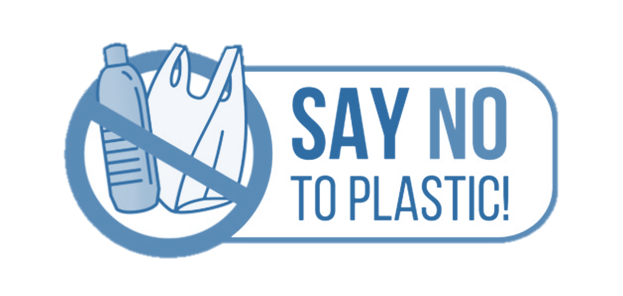
- What do you identify as the main challenges to actually changing the way we currently deal with waste, both in Lithuania and beyond?
First of all, people should start looking at waste as a resource, not just a throwaway. And we do not want to waste resources, do we? Then, the few items which are sadly throwaway must be given another life either as compost or as recyclates to be used again for production.
- In your opinion and experience, how crucial is the role played by Cities – in moving a country further towards zero waste?
Cities are being able to make changes rather quickly, making them models for best practice zero waste societies and serving as an example for policy makers to encourage shifts to more ambitious national legislation. I hope that the environment ministry and parliament in Lithuania will see that public events can happen without single use plastic and then, in turn, will apply that to the whole country.
- What was your role – or the role of your Žiedinė Ekonomika – in helping secure the ban?
As a zero waste NGO, we hold advocacy and education as priorities. We have therefore been very creative in our approach: ringing bells, sending information and organising events in Vilnius regarding better waste management policies for years. I’m proud to say that the citizens of Vilnius are tired of single use items and plastic pollution thanks to our work. Some politicians too, really want to make a change and we will keep helping them get there.
P.S. We are among many organisations that do not want single use plastic and it would be unfair to take too much credit 🙂
- Looking forward, what is the impact that you are expecting from the ban and what are the next steps in the New Year to move Lithuania one step further on the path towards zero waste?
I hope all the other Lithuanian municipalities will follow the example of Vilnius. There really are better alternatives and we can all be less wasteful. I am hopeful that this year will bring a lot of changes in other areas too. There is a good understanding from the ministry of the environment regarding non-recyclable single use packaging and we hope that the parliament will approve their amendments to current extended producer responsibility legislation and make non recyclable packaging much more expensive than recycled materials. Also, regional waste management centers are looking for ways to start the separate collection of food waste and soon most of them will roll out this new system too.
If you are curious to discover more about our work on plastics please have a look at the Rethink Plastic alliance webpage or check out our efforts to Break Free From Plastic, here.
You can find more about Ziedine Ekonomika and their work here.
